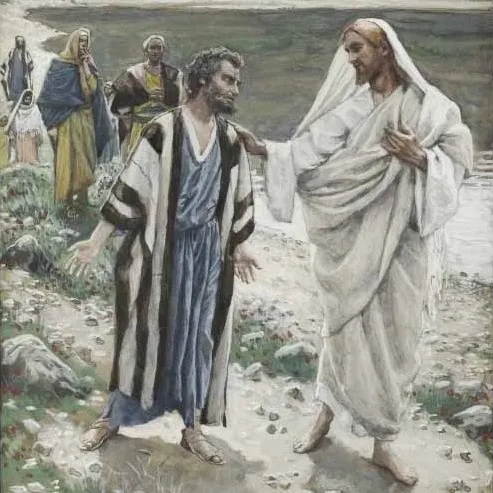Jijo Kandamkulathy, CMF
Claretian Publications, Macau
Jn 1:35-42
2ND SUNDAY IN ORDINARY TIME – YEAR B
The gospel passage narrates the encounter of the first set of disciples with Jesus at the beginning of his public ministry. Jesus was introduced to Andrew and his companion by John the Baptist and they call him, teacher. After staying with him for a day, the image of Jesus the teacher grows into the figure of the Messiah. If we think they have quickly identified Jesus completely, we are mistaken. To know what would be revealed of Jesus to the disciples we must delve into that conversation a little deeper.
The question of Andrew and his companion is: where do you live (stay/abide)? It is a courtesy question in a first meeting. Jesus does not answer this directly, instead offers an invitation to go and see the place he lives. In fact, along the ministry Jesus would tell them what they might have already understood, where he does not live. “Foxes have holes, birds have their nests but the son of man has no place to lay his head” (Mathew 8: 20).
“Where he lives,” would be answered much later, by the end of the gospel of John, leading us into the deep mystery of the relation between the Father and the Son. Jesus would tell, “As I live in the father, you too must live in me.” (John 14:20) Well, that is the dwelling place of Jesus, the heart of the Father. He considers his Father’s heart as the place of his food and boarding. He would invite the disciples to live also in him.
Very sadly, after a long time of living with Jesus, the disciples had not understood that mystery and Philip would ask, “show us the Father!” (John 14:8-9). Jesus would ask them in reply, rather sadly, “Haven’t I been with you so long and you do not know that? The one who sees me sees the Father.”
The simple conversation of Andrew and his companion with Jesus would take them to the heart of a mystery and at the end of the ministry of Jesus. They would realize, that Jesus was not just a Messiah but the Son of the Father, the Son after the heart of his Father.
There are different ways we look at the other person. Some people look at a person from the past, evaluating the achievements and failures of the person. Some look at the other evaluating the present position that they hold, while some others look with the potentials that one holds. The disciples looked at Jesus with a future perspective of being a potential Messiah and would not manage to go any further.
It is significant to read, at the end of the gospel today, how Jesus looks at Simon. He could have been called by what he is doing, a fisherman, or by his age, ‘uncle’ or anything that could have made even a familiar, friendly effect. Rather Jesus sees in him the rock on which he would build his Church and called him Peter. What an empowering experience that might have been! Even Peter might not have understood the meaning of this change of name.
Looking at a person multiplying in values, imagining his/her future potentials, will empower and encourage a person to pursue a dream. Jesus just did that with the disciples.


 Follow
Follow


